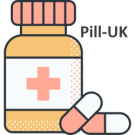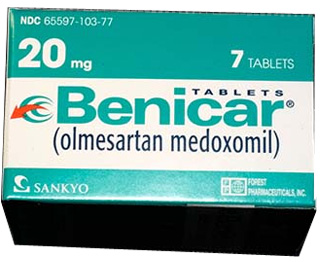Hypertension is a disease of the cardiovascular system characterised by persistently high blood pressure. In today’s world, chronic stress, bad habits, unhealthy diet and obesity are compounded by hereditary factors. All these contribute to the narrowing and loss of elasticity of the blood vessels and, consequently, to the development of hypertension. Even more alarming is the fact that half of the 1.5 billion people with the disease do not even realise they have it. But diagnosis is quite simple even at home: blood pressure needs to be measured systematically, and if there are constant values of 130-139 / 85-89 and above, it is advisable to see a doctor as soon as possible.
In this article we look at Benicar, a medicine that helps to prevent strokes, heart attacks and kidney problems by reducing high blood pressure. Here you will find not only information about the product, but also the possibility to buy it online at a good price and without a prescription, and the postal service will guarantee fast delivery to even the most remote cities in United Kingdom.
What Benicar is and how it works
Benicar (the active substance olmesartan) is an angiotensin II receptor antagonist. The medicine prevents vasoconstriction and maintains normal blood flow.
Indications for Benicar
Benicar is used to treat high blood pressure, heart failure and diabetic kidney disease.
Contraindications
Contraindications to the use of the medicinal product include hypersensitivity to the active substance or to any of the ingredients of the medicinal product, biliary obstruction, age below 6 years, pregnancy and lactation.
Patients with renal impairment and diabetes mellitus are contraindicated for concomitant use of olmesartan with aliskiren-containing medicinal products. You should consult your doctor before starting treatment. Inform your doctor of any diseases, allergies and medications you are taking. This will help in prescribing the appropriate and safe treatment regimen.
What Are The Side Effects Of The Medication?
Adverse reactions have included anaphylactic reaction, hypertriglyceridemia, hyperkalemia, dizziness, headache, angina pectoris, low blood pressure, bronchitis, pharyngitis, cough, rhinitis. Some patients have also reported gastroenteritis, diarrhoea, abdominal pain, nausea, dyspepsia, vomiting, allergic dermatitis, urticaria, rash, pruritus, angioedema. In some cases arthritis, back pain, hand pain, muscle cramps, chest pain, urinary tract infection, kidney disorders, dizziness, increased tiredness, asthenia, malaise, lethargy, increased liver enzymes, increased blood urea level, increased blood creatinine level.
In case of side effects, consult your doctor and, in particularly severe cases, seek emergency treatment.
Dosage and administration
The tablets should be taken orally with plenty of water.
The individual daily dose should only be prescribed by the doctor on the basis of a complete clinical picture. Do not attempt to self-medicate. The doses required may differ from those recommended.
The recommended starting dose for adults is 10 mg once daily, but if blood pressure is not sufficiently low, the dose is increased to the optimal daily dose of 20 mg; in some cases, the dose may be increased to 40 mg once daily, or hydrochlorothiazide may be added to the treatment. The maximum effect is reached after 8 weeks of treatment, while the significant blood pressure lowering effect is observed after 2 weeks of treatment.


